It may well be one of the most German things imaginable – a roundtable discussion designed to give a fair amount of time to a wide range of viewpoints before (maybe) achieving some sort of consensus.
Failing that, viewers – theoretically anyway – walk away better informed and open to changing some of their opinions after a, again theoretically, respectful discussion.
Welcome to the German political talk show circuit – a collection of moderated roundtable discussions.
Whether its Anne Will on Sunday nights, “Hart aber fair” or “tough but fair” on Mondays, or Maybrit Illner on Thursdays and Markus Lanz on Tuesdays, Wednesdays, and Thursdays – you can tune into several political panels a week if you fancy.
If you have politically-minded German friends or co-workers, you might ask: “Did you watch Lanz last night?” Anecdotally, at least as many people who watch will have strong opinions about why they don’t.
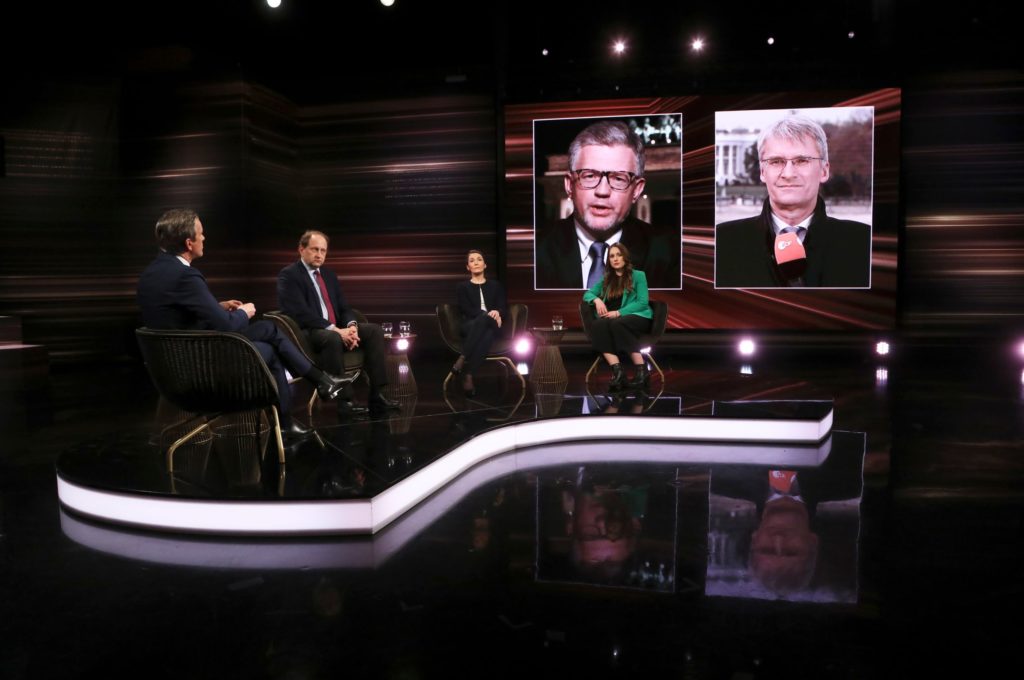
“Lanz is a disgrace!” and “I don’t watch Anne Will out of principle!” are both phrases I’ve heard myself more than a few times over the years.
But if you are a fan and you miss an episode, don’t worry – many news outlets will run summaries of what happened during said roundtable the next morning.
“Newspapers regularly publish these recaps almost as if they were relevant parliamentary meetings,” says Peter Littger, a columnist on language and culture in Germany. “It’s super relevant politically. It can increase your voting base and certainly your book sales if you appear there.”
READ ALSO: Tatort to Temptation Island: What do Germans like to watch on TV?
‘Consensus-oriented political culture’
If the nationally-focused ones aren’t enough for you, there’s a good chance you can find a show on a regional broadcaster focusing on issues in your federal state, again in – you guessed it – roundtable format.
As you might have gathered, the show’s name is often the same as its host, who functions first and foremost as a moderator there to facilitate and mediate a discussion between guests who are chosen specifically to balance a panel.
For a discussion on Ukraine, for example, you’ll regularly have people from every political party, from ministers and high-ranking parliamentarians who chair important Bundestag committees to pro-Russian voices from the German Left Party and far-right Alternative for Germany (AfD).
And no one is too high-ranking not to make at least the occasional appearance. Chancellor Olaf Scholz himself joined a Maybrit Illner roundtable on July 7th this year.
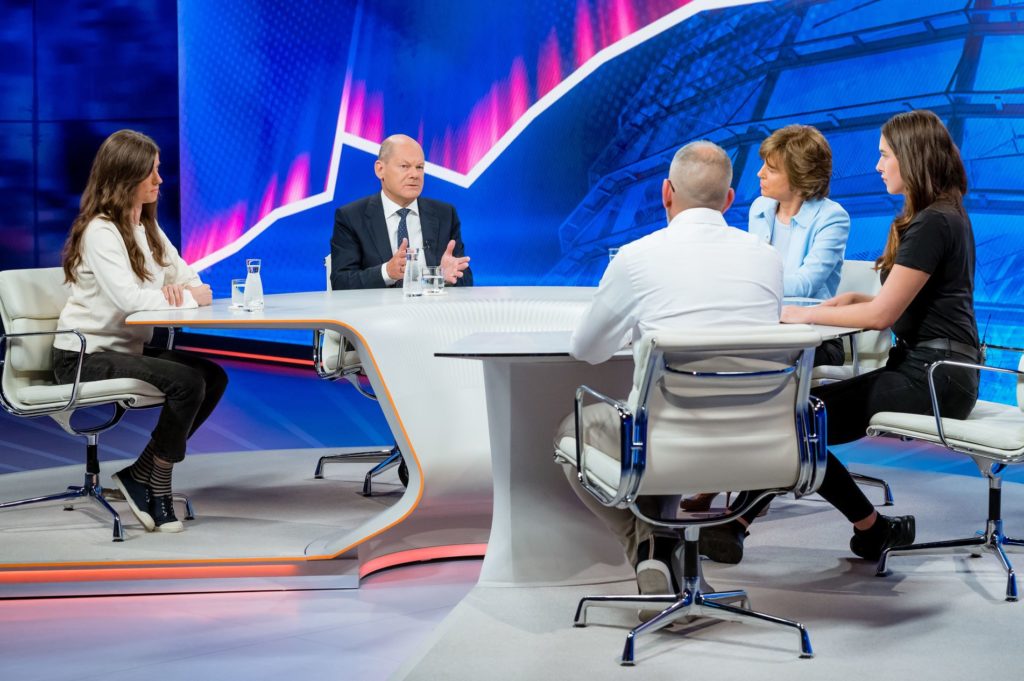
Both European Commission President Ursula von der Leyen and Ukrainian Foreign Minister Dmytro Kuleba have also made appearances on Anne Will this year.
In characteristically German fashion, state broadcasters have extensive written regulations to ensure a panel also has a balance of people from relevant expert disciplines. For instance, a coronavirus panel may well feature a notable doctor alongside a civil liberties lawyer.
“Germany has a more consensus-oriented political culture than you might see in a country like the UK, for example, which is more confrontational and even adversarial,” says Sebastian Ludwicki-Ziegler a PhD researcher at the University of Stirling’s Department of Communications, Media, and Culture.
“You’ll still get some invited guests who are very contrarian and even aggressive – like Thilo Sarrazin (a former politician who wrote a controversial book in 2010 about Muslim immigration to Germany) for example. But even then, the moderator often tries to maintain a softer, more civil tone.”
Ludwicki-Ziegler says that while the roundtable format reflects German political culture, it also reflects its institutional setup. A show producer can simply get more obvious ranges of political opinion in a country with Germany’s proportional representation, which has seven parties in parliament.
Historic roundtables
Unlike the often subdued German Bundestag though, German talk shows can certainly get lively, or even historic.
Perhaps the most notable TV roundtable happened right after the 2005 federal election. With then incumbent Social Democrat Gerhard Schröder having finished only one percent behind Christian Democrat Angela Merkel when all the votes were counted, party leaders gathered in the traditional “Elefantenrunde,” or yes, the “Elephant’s round,” to discuss the results.
READ ALSO: Talking elephants and grumpy politicians: Four things that will happen after the German elections
With the final election result having been so close, observers still discuss whether Schröder lost his chancellorship at the ballot box or during the 2005 Elefantenrunde. In contrast to a calm Merkel, Schröder insisted he would stay on as Chancellor.
Brash and arrogant, some observers have asked whether he was drunk at the time. German media outlets ran anniversary pieces looking back at his disastrous roundtable performance 5, 10, and 15 years later. One such anniversary piece from 2020 called the roundtable “Schröder’s embarrassing end.”
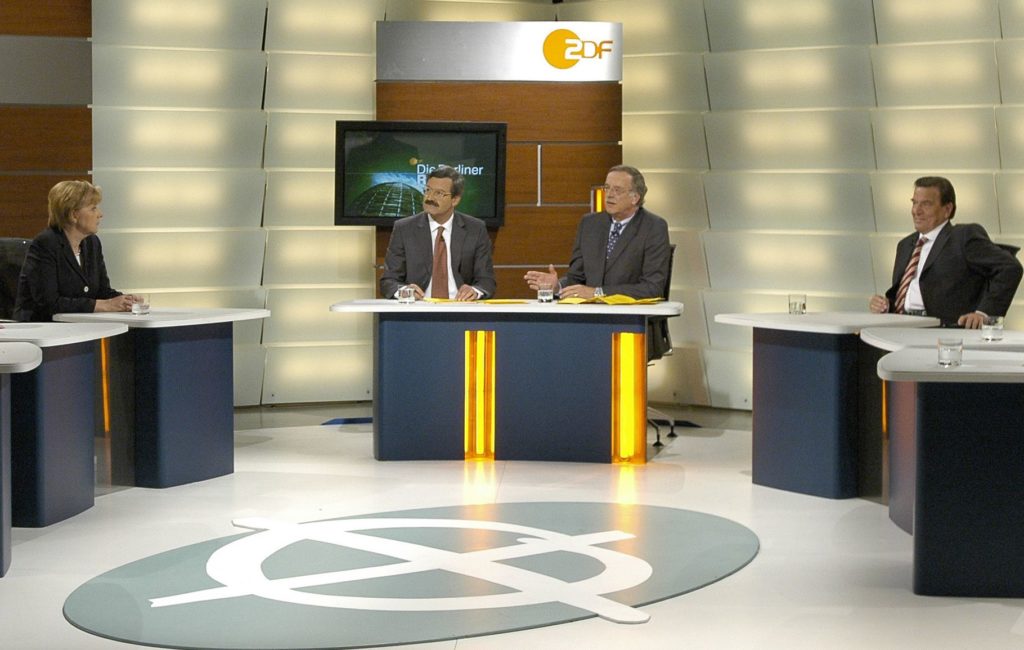
Mastering the roundtable appearance is a big plus for a German politician, or anyone else looking to move the needle of German public opinion.
Satisfying a particularly German impulse, you can certainly also walk away feeling like you’ve considered all sides. But are there drawbacks?
On 8 May 2022’s edition of Anne Will, social psychologist Harald Welzer appeared to lecture Ukrainian Ambassador Andriy Melnyk that 45 percent of Germans were against delivering heavy weapons to Ukraine because of German war history. Many observers criticised Welzer for patronising the Ambassador of a country at war about the need to have weapons for its own self-defense.
The exchange, and a fair few others, lead some experts to wonder whether the roundtable format so many German political talk shows seem to love gives too big a platform to pro-Russian voices or to controversial writers like the aforementioned Thilo Sarrazin.
“If we take Germany and Ukraine as one example, you can get some great guests who come on and really set things straight with facts, data, and plain talk,” says Benjamin Tallis, a Fellow in German Security Policy at the German Council on Foreign Relations.
“But you can get false balance. You’ll get people on with rather fringe opinions given a platform against people who have a lot more experience and evidence. That’s true in a lot of places now, sure, but this talk show format really lends itself to that because of the amount of guests you need on a nightly basis,” says Tallis.
“Unfortunately in Germany, many guests are invited on based on their opinions about an issue rather than the level of their expertise, in order to try and achieve balance,” says Minna Alander, a specialist in German foreign policy who recently joined the Finnish Institute of International Affairs after more than a decade working in Berlin.
“When you start equating opinion with knowledge, it makes it way more difficult to have a fact-based debate. On matters of life and death, like in Ukraine, that can have a polarising effect.”

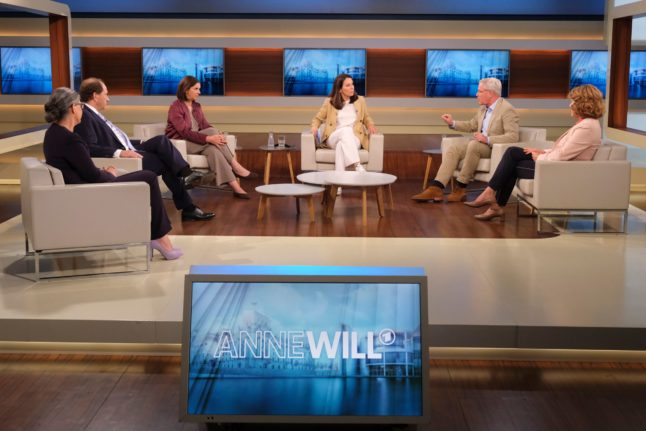
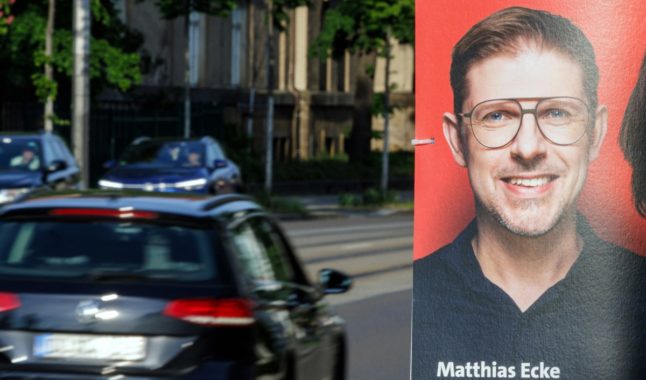
 Please whitelist us to continue reading.
Please whitelist us to continue reading.
Member comments